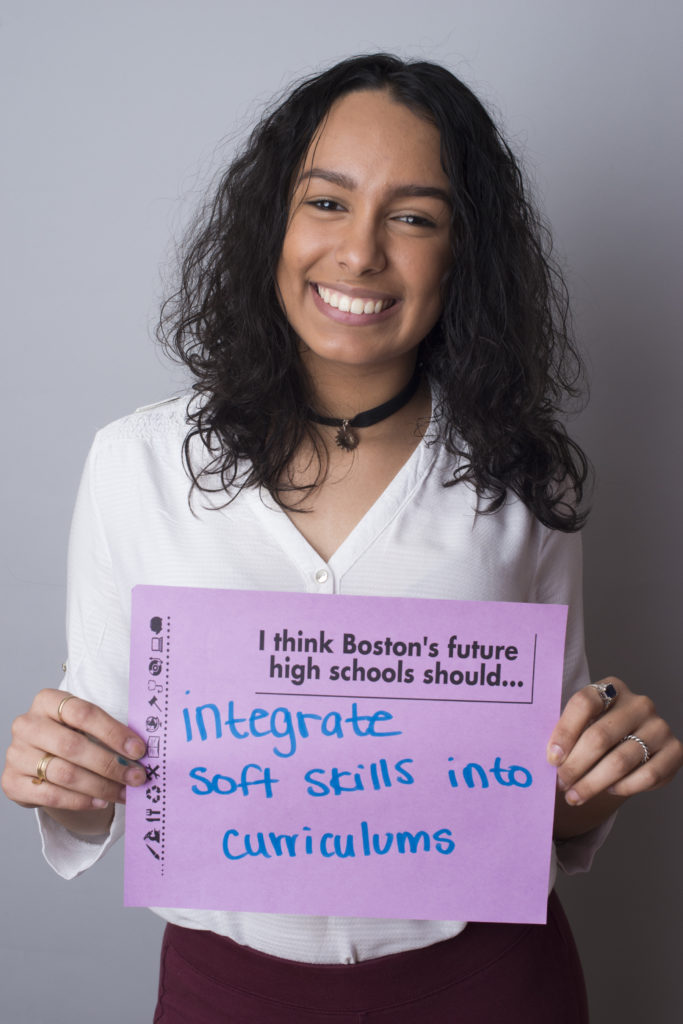
By Ariana Serret
To succeed in today’s workforce, you not only need the skills relevant to your profession, but also the necessary soft skills to function in a complex environment.[1] Introducing and assessing students on soft skills in schools will improve their success in the workforce.
Once soft skills are introduced in high schools, we will see a decrease in student unemployment and an increase of self-aware, mature students.
A school by the name of the Margarita Muñiz Academy made it a goal to create successful citizens and leaders in a way different than most other schools through RAICES, an acronym for responsibility, advocacy, integrity, compassion, excellence, and stretching. This acronym represents combination of soft skills that are used to assess students in their classes. When teachers create classwork, homework, and projects, they are weighed in academic grades, but they also contain a weight in students’ RAICES grade. If a student were to do a magnificent project worth an outstanding grade that was turned in days after the deadline, they would get a good grade on their academic score, but because it was after the deadline, it would show in their RAICES grade.
This method of grading has been exceptional for the Margarita Muñiz Academy, but not all schools have the opportunity to introduce soft skills into their grading system. A more common method of introducing soft skills into schools is by partnering with a nonprofit organization. We can find this type of partnership at the Fenway High School.
Fenway High School noticed their students needed something other than the core curriculum to succeed, so they partnered with a nonprofit organization called the Ventures Program. Emily Leopold, the Former Director of the Ventures Program, informed me of what this program is about and how beneficial it is to the students. The Ventures Program aims to give students a taste of the real-world in the workforce. With this intention, the staff works with seniors by teaching them the importance of soft skills and other important subjects related professionalism and the workforce. For the first three-quarters of the year, seniors at Fenway High School take classes on how to be become professionals, and their last quarter involves applying what they learned in an internship. Subsequently, by the end of the internship the bosses evaluate the student’s soft skill strengths and weaknesses, while the student also performs a self-evaluation. More importantly, students noticed strengths and weaknesses in themselves during their internship, and with the help of the Ventures Program these students now have knowledge of what is expected of them in today’s workforce.[2]
According to many sources, soft skills are very difficult to teach and assess. However, schools do not need to teach or assess soft skills. The Margarita Muñiz Academy does not have a class dedicated to soft skills, but still introduces the importance of these skills by showing the students how soft skills are closely related to their performance. The Ventures Program does not assess soft skills the way the Muñiz Academy does, but they have students endure a real-life scenario as employees and have the student realize how their work at their internship is also related to soft skills.
By introducing soft skills in high schools, students will have the opportunities to submerge themselves in the 21st century workforce prepared with knowledge about the importance of soft skills and/or experiences as an employee. Life as a BPS student would improve if my proposal were to be realized because it would give students a great sense of self-awareness and a new outlook towards possible careers and jobs. Once soft skills are introduced in high schools, we will see a decrease in student unemployment and an increase of self-aware, mature students.
You must be logged in to post a comment.